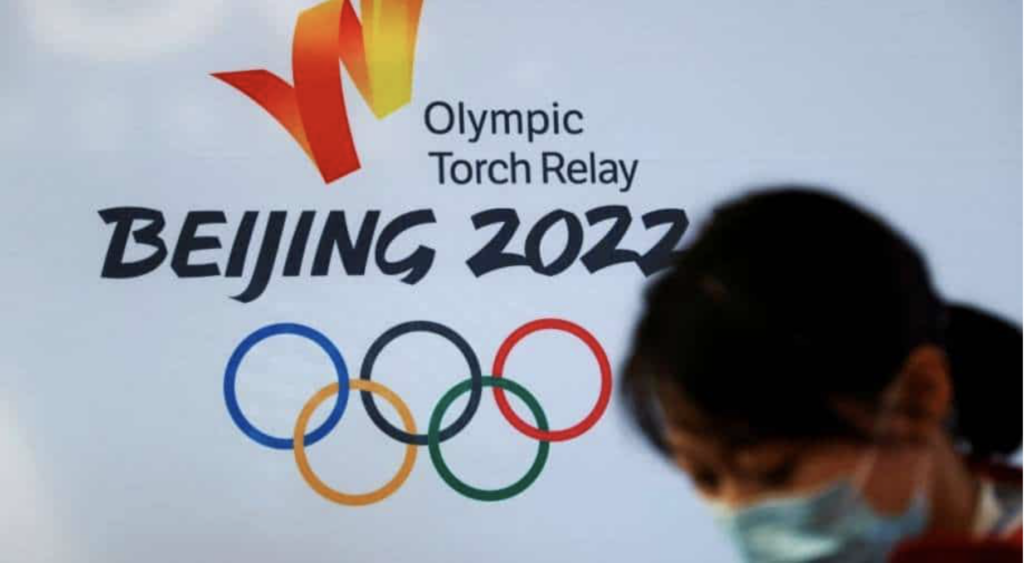China warns the US, in response to the U.S. diplomatic boycott of the Winter Olympics in Beijing over human rights concerns, China warned the United States that it would “pay the price.”
After months of wrangling over how to approach the Games, beginning in February next year, over what it has called China’s “genocide” of the Uyghur minority, Washington took a firm stance last week. However, it didn’t prevent athletes from attending.
Beijing objected fiercely to the move, threatening to take unspecified countermeasures, warning the U.S. it would “pay a heavy price.”
At a daily press briefing, Zhao Lijian, spokesman for the Chinese foreign ministry, said, “Stay tuned.”
“The United States’ attempt to interfere with the Beijing Winter Olympics based on lies and rumors will only reveal its sinister intentions,” Zhao says.
In addition, “the Winter Olympics are not a stage for political shows and political manipulations,” he said, accusing the U.S. of “interfering in and undermining the Beijing Winter Olympics.”
The U.S. is boycotting the Olympics in Beijing due to ‘atrocities’
American rights groups and politicians have been praising Washington’s move, where Biden has been pressed into speaking out against Chinese rights abuses.
Despite China’s “continuing genocide and crimes against humanity in Xinjiang and other violations of human rights,” White House Press Secretary Jen Psaki has said the US will not send diplomatic or official representation.
Psaki said sending official representation would signify that the Olympics are “just another game.” “We simply cannot do that.”
She added, “The athletes on Team USA have our full support. We will be behind them wholeheartedly.”
This was a “purely political decision for each government, which the IOC fully respects in its political neutrality.”
As a result of the announcement. “The Olympic Games and the participation of athletes goes beyond politics,” an IOC spokesperson said.
Following its invasion of Afghanistan in 1980, the USSR was subjected to a Olympics boycott of the by the US.
“We believe the Olympic Games should be free of politics,” Kremlin spokesman Dmitry Peskov told reporters. However, he said it was optimistic that the decision did not affect the participants.
High-wire Diplomacy
As Biden’s predecessor Donald Trump was in office, US-China relations reached a low point with a massive trade war and an incendiary debate over the origins of the Covid-19 virus in Wuhan, China.
By re-engaging with Beijing, Biden is also strengthening traditional U.S. alliances to counter China’s expanding economic power and military presence.
He has left the Trump-era tariffs on China in place. And continues to order naval patrols through sensitive sea lanes that Beijing opposes.
Despite Biden’s emphasis on dialogue, critics on the right say he’s being too soft, making the looming Olympics a political flashpoint.
We will still be providing consular and diplomatic security assistance to Team USA staff, coaches, trainers, and other members of the organization, according to State Department spokesman Ned Price.
Strong Rebuke
At least one million Uyghurs and other Turkic-speaking, predominantly Muslim minorities face imprisonment in Xinjiang camps. Other than this, China is also facing accusations of forcibly sterilizing women and imposing forced labor.
Bob Menendez, chair of the influential Senate foreign relations committee, welcomed the diplomatic boycott. He sees it as “a powerful rebuke” to the “genocide in Xinjiang.”
Human Rights Watch called the Biden administration’s decision “crucial”. But al called for more accountability “for those responsible for these crimes and justice for the survivors.”
Former tennis star Peng Shuai also made sexual assault allegations against a retired Communist Party politician during the Beijing Olympics.
After her claims were quickly censored, the three-time Olympian disappeared for nearly three weeks before resurfacing.
Six months after the pandemic-delayed Tokyo Summer Olympics, the Winter Olympics will take place. They are going to start from February 4 to 20 in a “closed-loop” due to Covid-19 restrictions.
Residents of Beijing told AFP opposed them to the move by the United States.
“Sports are sports. What is its connection to politics? Besides, does whatever standard you say become de facto?” asked a 72-year-old retired teacher, who gave her surname as Wang.
With Olympics right around the corner, let’s see where this boycott leads to.
